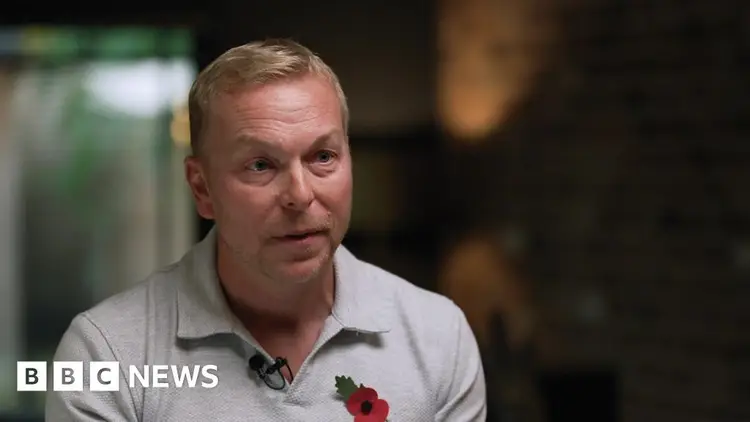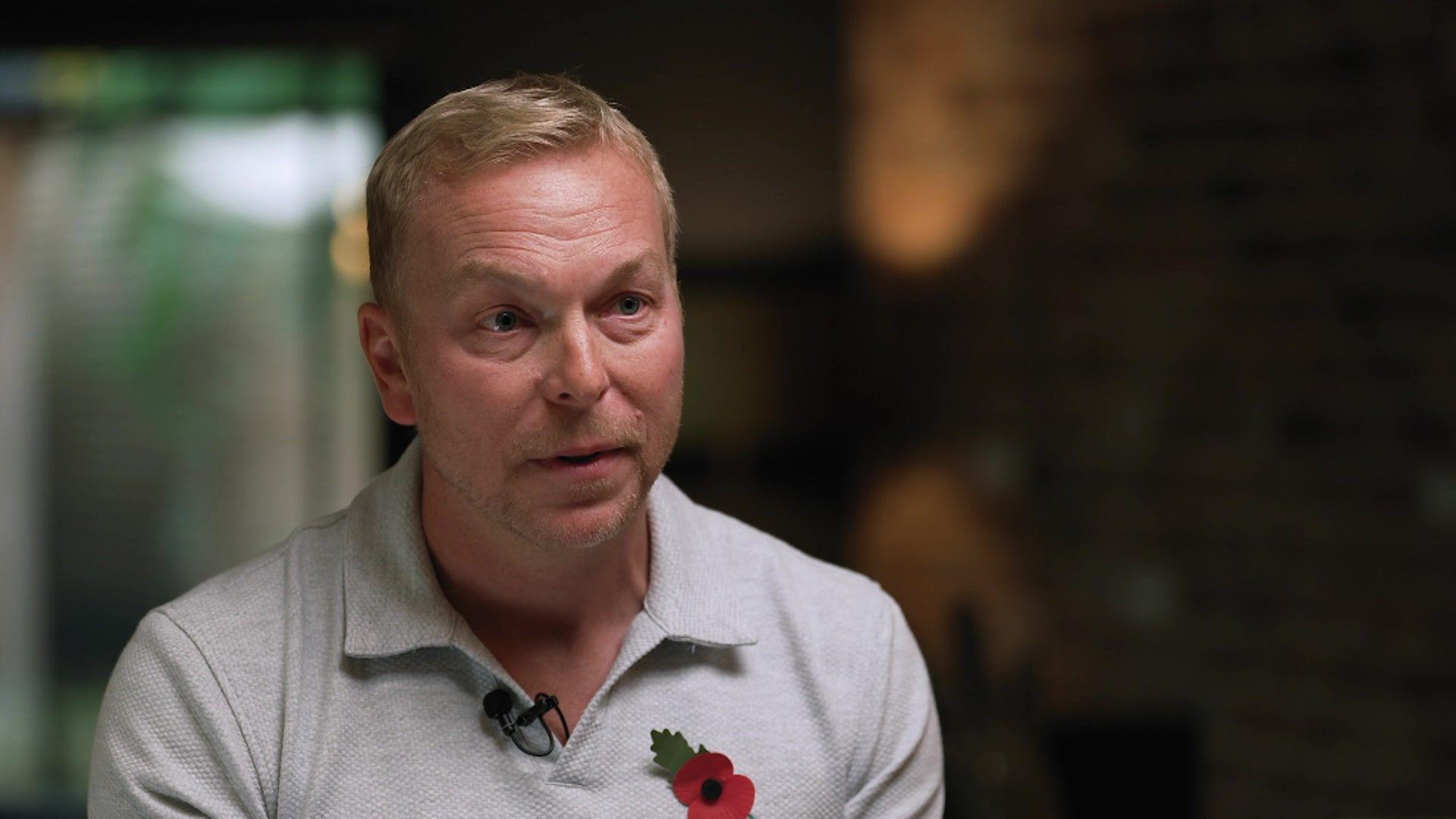Sir Chris Hoy: NHS to review prostate cancer testing after cyclist calls for change

Sir Chris Hoy describes his cancer diagnosis as the most surprising moment he's ever experienced.
The health secretary has stated that the NHS will consider updating its recommendations regarding prostate cancer testing following Sir Chris Hoy's compelling appeal for increased screening among younger men.

Olympic cycling champion Sir Chris, 48, has been diagnosed with advanced cancer that has metastasized to his bones and is considered terminal.
In his initial television interview following the disclosure of his health status, Sir Chris shared on BBC Breakfast that individuals with a significant family history of prostate issues should think about visiting their doctor for a PSA (prostate-specific antigen) blood test to aid in the early detection of the disease.
PSA tests are generally not provided to men under 50 who show no symptoms but could be at risk. Instead, doctors are advised to use their discretion in these cases.
Sir Chris expressed to BBC Breakfast, "It makes perfect sense to me. Why wouldn't they lower the age? By doing so, more men could be encouraged to come in for a blood test."
Health Secretary Wes Streeting shared with the BBC that Sir Chris presents a compelling case. "That's why I've requested the NHS to explore the possibility of reducing the age limit."
"It clearly needs to be decisions based on evidence and guided by clinical expertise," he stated.
According to NHS guidelines for England, individuals over the age of 50 can ask for a PSA test if they wish to have one.
Men of all ages experiencing symptoms can request one as well.
The NHS does not provide routine PSA testing or screening because specialists believe the test isn't sufficiently reliable to confirm or dismiss cancer on its own. Physicians are exploring the possibility of enhancing PSA tests by incorporating MRI scans to see if it could lead to better results.
The organization Prostate Cancer UK supports this initiative, stating that increasing the number of screenings could lead to the saving of thousands of lives annually.
Chiara De Biase, the spokesperson, stated: "One in every eight men will be diagnosed with prostate cancer, yet we do not have a screening program in place for this illness."
If your father or brother has experienced prostate cancer, or if you are of African descent, you are at a greater risk for developing the disease. We highly encourage you to discuss testing with your doctor starting at age 45.
It's important for you to recognize this issue and discuss it directly with your doctor. Prostate cancer frequently doesn't show symptoms in its early stages, which results in many men receiving a diagnosis too late for effective treatment, similar to Sir Chris's situation.
Photo credit: Getty Images
Sir Chris, one of the nation's most celebrated Olympians, mentioned that he was experiencing no symptoms.
Sir Chris described the overwhelming shock and devastation he experienced upon receiving his initial diagnosis.
The announcement of his terminal illness in September 2023 took everyone by surprise.
"There were no signs or alerts whatsoever. The only thing I experienced was some discomfort in my shoulder and slightly in my ribs."
He shared the difficult experience of finding out that his wife Sarra had multiple sclerosis, and the challenge of telling their two young kids about it.
"We aimed to stay optimistic and communicated, 'You know what? This is our plan, and you can play a role in it. When I'm not feeling my best, your hugs can make a difference. You can offer support, spread joy, and show kindness to one another.'"
He expressed his appreciation for the overwhelming support they've received and mentioned that he is concentrating on the positives and the potential benefits that could arise from it.
"This Year Has Been The Toughest Yet"
His announcement led to a nearly eightfold rise in searches related to prostate cancer symptoms on the NHS website in the days that followed.
He said to the BBC, "By a long shot, this has been the hardest year we've ever faced."
"I hope that by sharing my story, others will feel encouraged to talk to their doctors about it. If enough people do this, it might prompt decision-makers to take action and recognize the need for change. Ultimately, this could help save countless lives in the future."
He remarked, "I understand how this will all turn out. No one is immortal. Our time here is limited. Don’t spend your time stressing over things that aren't significant. Concentrate on what truly matters."
"My outlook on life has shifted significantly. I find myself appreciating each day more and feeling a deeper sense of gratitude. This past year has been challenging, and I know there will be tough times ahead, but for the moment, we’re managing quite well."
The NHS recommends that men consult a doctor if they believe they might be at an increased risk for prostate cancer. As men get older, their chances of developing this type of cancer go up.
Cancer Research UK indicates that current evidence shows that regularly screening men with the PSA test is unlikely to significantly reduce deaths from prostate cancer. Furthermore, it may result in men receiving unnecessary treatments, which could lead to added stress and possible side effects.
PSA is not a definitive diagnostic tool. An elevated PSA level doesn't automatically indicate cancer. There are various other conditions, such as inflammation, that can also cause an increase in PSA levels.
If you request a PSA test, your doctor might suggest that you carefully consider the potential advantages and drawbacks.
The complete interview with Sir Chris Hoy, titled "Finding Hope," will air on BBC One at 8:00 PM GMT on Tuesday, November 5. After the broadcast, it will be accessible for streaming on BBC iPlayer. Additionally, you can listen to the entire conversation on BBC Sounds.





































































